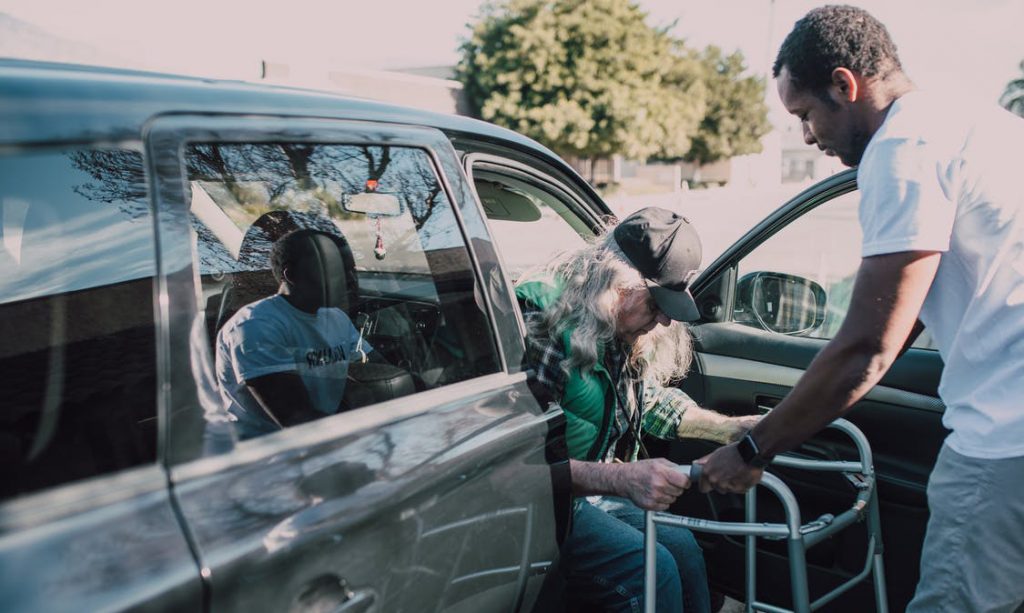3 Side effects of volunteering that will make you better at what you do

Make no mistake: it is a wonderful thing to do a good deed purely for the sake of helping someone else – this is altruism at its best. But, if that same good deed that helps another inadvertently benefits you in some way, then surely that’s even better?
Volunteering is typically seen as a selfless act, where an individual offers their time and resources toward the betterment of others. Yet, those who volunteer have also reported profound and positive “side effects”, which benefit them in their professional lives.
Tshego Bokaba, Group CSI Manager at Momentum Metropolitan, says: “Through our Lesedi Staff Volunteerism Programme, we’ve seen many of our employees gain new skills through engaging in a diverse range of activities, which they wouldn’t normally be exposed to in their day-to-day role.
“In many cases, these new skills have even directly contributed to an employee’s promotion or some other form of recognition.”
She adds that volunteering can also help one to find fulfilment, through discovering hidden talents, passion or purpose. “We’ve seen a personal shift in some of the employees who engage in our programme; they appear more fulfilled, happier, less stressed, and with more perspective.”
Bokaba shares three positive side effects of volunteering that will benefit you in your career.
Side effect 1: Through exposure, you’ll discover new skills
Through volunteering, it is likely that you will participate in activities or perform tasks that you wouldn’t normally be exposed to in your daily life. “Perhaps you’re an accountant, and your job involves crunching numbers and balancing bottom lines. You decide to volunteer for a non-profit organisation that supports victims of domestic violence, and through this engagement, you find yourself holding a fundraiser position, which helps you learn project management and networking skills. Perhaps you decide to speak on behalf of the NPO at a rally, and in the process, discover a previously dormant talent for public speaking.”
Bokaba says volunteering will help you to learn a wide range of skills – from leadership to problem-solving – which will benefit you in your career. It will also, in turn, help you step outside of your comfort zone, and up the next rung on your career ladder.
“For some, volunteering can even lead to a career change, as a result of them discovering a personal passion on their journey.”
Side effect 2: By coming into contact with people from all walks of life, you’ll grow
Volunteering takes us out of our comfort zone, which makes us vulnerable. Bokaba believes that when we are vulnerable, it is easier for us to authentically connect with people from different backgrounds.
“People tend to move in like-minded circles, surrounding themselves with those who are similar to them. Through interacting with people outside of your usual social or professional circles, you will be exposed to a wide range of experiences, adding richness and perspective to your own life. This will not only grow your network – which will benefit you professionally – but it will also growyou.”
Meeting people from all walks of life helps one to become more empathetic, and to put themselves in another’s shoes. “Oftentimes at work, we will find ourselves struggling to navigate our way around a problem or conflict. The perspective you have gained through your volunteering interactions will make you better equipped to handle these issues, and find a compromise, path or resolution that will benefit all parties.”
Side effect 3: While helping others, you’ll pick up practical work experience
Bokaba highlights that volunteering is a great way of helping you remain connected to the working world should you find yourself retrenched or unemployed. Volunteering will help you practise your skills while showing potential employers that you are proactive, a team player and connected to something greater than yourself, says Bokaba. “This ultimately makes you more employable.”
It has been found that employers look favourably on volunteerism – one Deloitte survey revealed that 81% of employers believed that skilled volunteering should be considered in a hiring decision, while 76% felt that volunteering made a candidate more attractive from a recruitment standpoint. Another CNCS report determined that those who volunteer regularly are 27% more likely to be hired.
For young people or graduates, volunteering can help you gain practical work experience across a wide variety of tasks and functions. “With the need across South Africa so deep and vast, NPOs tend to be stretched in terms of resources, and so those who volunteer often find themselves donning multiple hats.
“Experience is always a tricky one for young job seekers. Employers generally want to hire candidates with some experience, but experience cannot be gained without being hired – causing a chicken-egg conundrum. Volunteering is one way to bridge this gap, helping youth to gain valuable experience that will bolster their curriculum vitae and help them on their career journeys.”